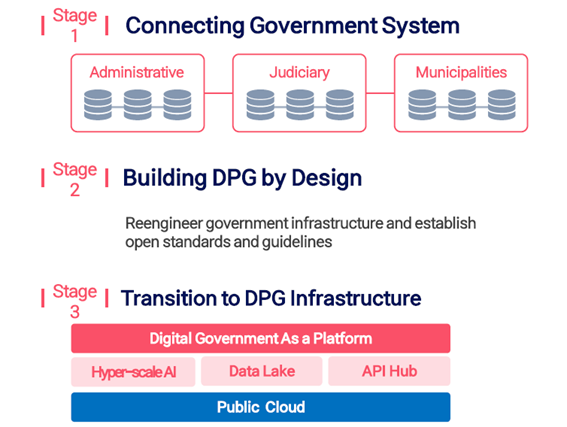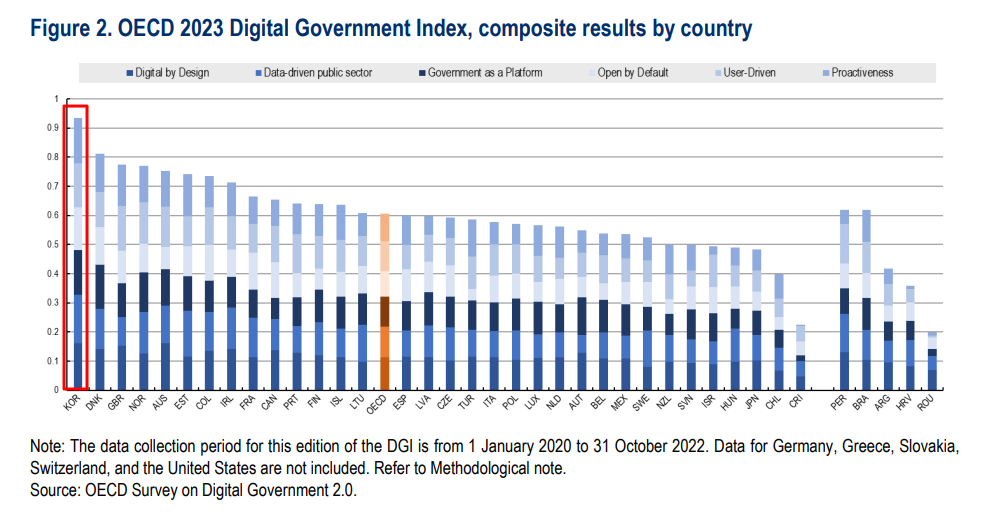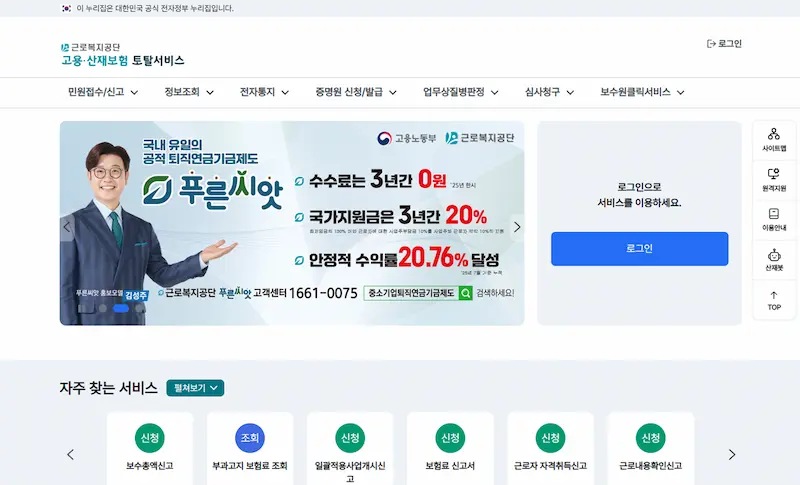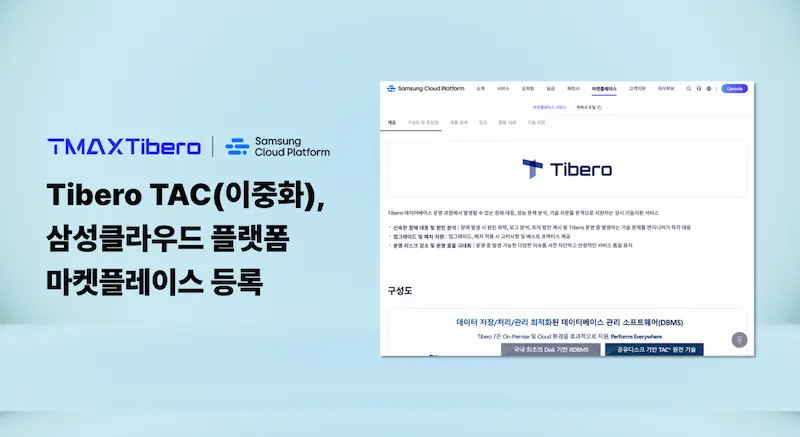
While the private sector is actively incorporating the latest technological developments into its business processes to improve competitiveness, the public sector is instead showing stagnant investment in large-scale IT systems due to strict budget limitations.
However, with the increasing need to adopt new technologies such as cloud computing, the public sector is now expected to achieve both operational efficiency and citizen satisfaction. South Korea has been recognized as a successful model for implementing innovative technological adaptation.
Here is exactly how South Korea was able to rank #1 in the GovTech Maturity Index (GTMI).
What is ‘Digital Platform Government’?
The concept of Korea’s Digital Platform Government (DPG) goes beyond traditional e-government practices by dismantling data silos between ministries, enhancing administrative service standards, and providing innovative services through the sharing of governmental and private sector data. Consequently, DPG aims to offer services that cater to diverse citizen demands.
At the heart of DPG lies ‘data’. Through the integration of all data sources, challenges can be addressed, and data-driven decisions can be made at ease. Moreover, leveraging this wealth of data facilitates the delivery of AI-driven administrative services.

Source: Korea’s new innovation strategy: Digital Platform Government, WEF, 2023
The achievements of DPG
The World Bank’s GovTech Maturity Index (GTMI) assesses the level of technical advancement implemented by each government. In 2022, South Korea secured the top position in GTMI rankings among 198 countries.

Additionally, Korea has attained the top ranking for the second consecutive time in the OECD’s Global Digital Government Index (DGI). Furthermore, it achieved the top ranking for public data evaluation by the OECD for the fourth consecutive time, as announced last year.

Click here to check out the detailed 2023 OECD Digital Government Index.
South Korea’s Overall OECD DGI Performance
OECD DGI evaluates the extent of digital government strategies and initiatives by examining the adoption of digital technologies and data utilization across central and federal public sector organizations, emphasizing a holistic approach. The countries are listed in order by measuring six dimensions of digital government policy frame works, and South Korea has shown exceptional overall results in four out of six dimensions.
△ Data-driven public sector measures how the utilization of data across public policies creates new values. South Korea emerged as the top performer, achieving a perfect score of 1, while the OECD average stood at 0.633.
Korea’s achievement was facilitated by the enactment of the Act on Promotion of Data-based Administration. This legislation aimed to establish a foundation for administrative and public institutions to collaboratively utilize and analyze data, encompassing processes for data request and coordination, designation of responsible personnel for data-based administration, and the establishment of data analysis centers.
Additionally, the creation of an “Integrated Data Management Platform,” wherein administrative institutions register their data and request data from other institutions as needed, has contributed significantly to the positive assessment and has laid the groundwork for evidence-based decision-making.
△ Government as a platform evaluates the transparent deployment of standards and data by the government, facilitating the development of demand-centered integrated and interconnected, while breaking down the barriers across the public sector to enable the creation of demand-centric services. South Korea received a score of 0.913, surpassing the OECD average of 0.615.
A well-received example of the strengthening of the government’s role as platform is “Open Digital Services”, which allows the private sector to access converged public services previously only available through public application and website.
△ Open by default determines the accessibility of the government’s information, data and procedures, Korea receiving a score of 0.882, with the OECD average score being 0.525.
The “National Hub Data” and “Authenticating Service” have been recognized for their excellence in facilitating the creation of added value from public data and ensuring the authenticity of information, respectively.
In addition to consistent creation of high-value data, the South Korean government also offers services that can be collectively accessed as public data. These services range from providing transportation information near residential areas to optimizing startup assistance services for small business owners.
△ Proactiveness assesses the governments’ ability to anticipate the public needs to facilitate the delivery of appropriate government services. South Korea received 0.934, significantly exceeding OECD average, 0.567.
Highlighted as exceptional is the “Virtual Assistant Service for the Public (Guppi) AI Chatbot,” which enables users to access Q&A and consulting services and provides easy access to essential administrative information on health, transportation, taxes, and more through integration with a public mobile app.
As of 2023, the number of subscribers to the Virtual Assistant Service for the Public reached approximately 16.26 million, positioning it as a leading administrative service, with one out of every three citizens using it.
The following post details on the DPG cases in South Korea, so stay tuned or visit the DPG website. (dgovkorea.go.kr)




